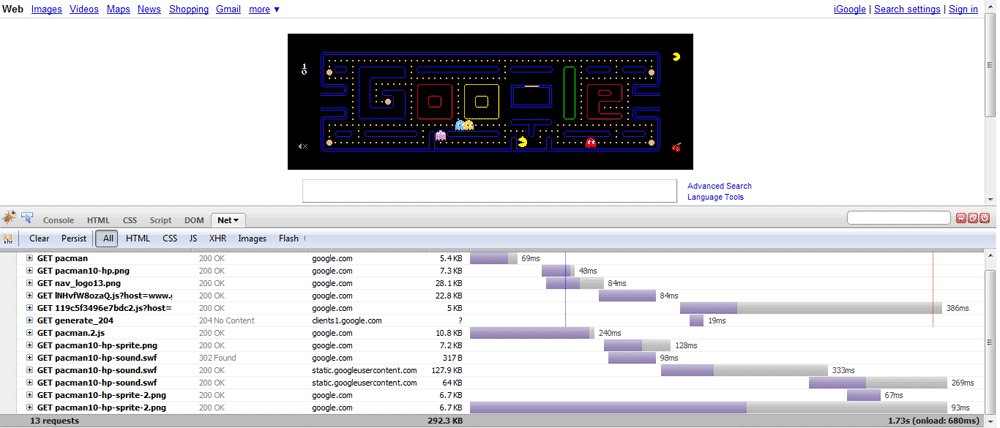Last month, Google broke the status quo by actually publicly disclosing a part of their top secret search algorithm. What change could possibly have been so significant that Google would announce it from the rooftops? As it turns out, Google now officially considers a page’s load time in its algorithm.
Matt Cutts even recorded a YouTube video confirming the weight that load time has in Google’s decision-making. Both Cutts’ video and the official blog touted the importance of User Experience: the quicker a page loads, the more usable/useful it is for searchers. It was a simple concept that made sense, and Google exhibited a rare complete transparency in disclosing it.
Fast forward one month. It’s the 30 year anniversary of the classic arcade game Pac-Man. As the top search engine is usually wont to do when nerdy dates cross the Google Calendar, the design team created a custom logo. But Friday, May 21st went down in Google history as the first interactive logo. It was a fully functional two-player Pac-Man game, complete with sound effects. It added 225 kb to the load time (a whopping 330% increase) and caused an intro sound to automatically play.

Load Time and File Sizes according to Firebug plugin
Some loved it; others hated it. I personally played it through four or five levels for some lunch break nostalgia, and Google even created a dedicated static page for the applet. However, despite the potential fun, it was very apparent that the homepage took a lot longer than usual to load.
In short, the search engine that has long positioned itself as the sleekest, quickest method to find anything on the web created a cumbersome default homepage to celebrate a video game anniversary. Was this arrogance on the part of Google? If Google didn’t have 64% market share (as of May, according to the Wall Street Journal), would it have sacrificed speed to create some social media bait? I also don’t believe it was an isolated incident. In an attempt to incorporate feature-rich functions, Google has (in the past year) included real-time social streams in its Universal Search, implemented fading effects on the homepage, and redesigned the entire SERP. Google seems to be continually willing to compromise core values (see also Google Censorship) to play the Web 2.0 game.
So was this a hypocritical move by Google? All signs point to yes, but it wasn’t that big of a jump, all things considered.

